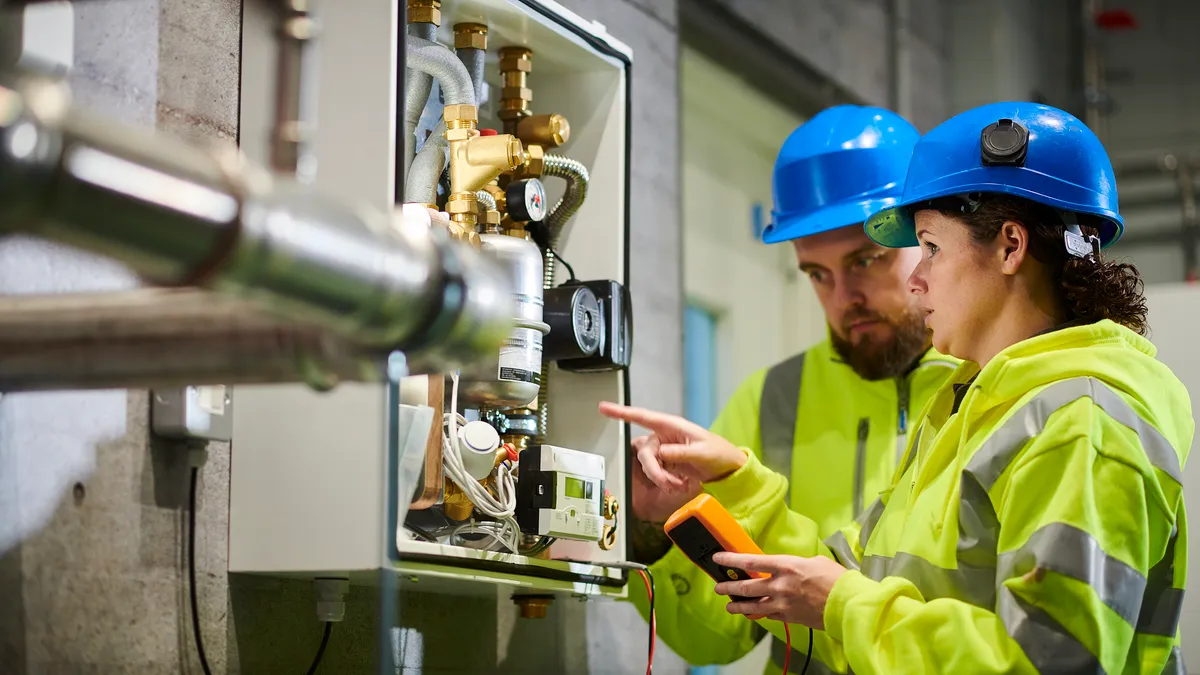Dive Brief:
- The U.S. Department of Energy is allocating $40.8 million in grants intended to expand workforce training opportunities for in-demand **clean energy** jobs and identify opportunities for organizations to save energy, improve productivity and reduce waste, according to a Nov. 16 release.
- The funds, from the bipartisan infrastructure law, will establish an additional 17 industrial assessment centers and 10 new building training and assessment centers.
- Funding recipients will work with hundreds of industrial facilities and buildings across more than 25 states and territories to provide technical assistance and conduct assessments at commercial and institutional buildings and small- and medium-sized manufacturers.
Dive Insight:
The IAC program has provided more than 20,000 assessments at small and medium-sized manufacturers for more than four decades, comprising more than 90% of U.S. manufacturing entities, the DOE said. It noted that the addition of new IACs will expand the model to train more than 3,000 students and incumbent manufacturing workers for “quality careers” that do not necessarily require a four-year degree.
The new building training and assessment center model intends to build on the existing IAC model to provide immersive, practical training for students and union apprentices through work that involves identifying opportunities to cut energy costs. In addition, the centers will offer training and upskilling opportunities for current building and manufacturing energy workers and bolster investments in “environmental quality, employees, and surrounding communities,” the DOE said. The expansion will serve commercial and institutional buildings across 26 states and territories.
The education institutions selected to establish BTACs include Fayetteville State University, Michigan State University, New Mexico State University, Syracuse University, Texas Tech University, University of Alabama, University of Louisiana-Lafayette, University of Miami, University of Washington and the University of Wisconsin-Milwaukee. A full list of selected IACs can be found in the DOE release.
Participants exiting the program will be prepared for roles as building energy managers, insulators, heating, air conditioning and refrigeration professionals and advanced technicians in sectors including battery and solar manufacturing, the DOE said.
Seventeen of the 27 selected IAC and BTAC programs are based at community colleges, trade schools and labor unions, with funding intended to expand the variety of paths workers can take to enter clean energy careers. Selected institutions will provide scholarships, job placement assistance and mentorship networks to serve diverse candidates, the DOE said.
The grants also align with the Biden administration’s Justice40 commitment, the department reported, with 75% of awards going to organizations that serve disadvantaged communities, help reduce energy burdens and increase access to “high-quality, good-paying jobs for Americans facing barriers to employment.” Almost half of the selected organizations are federally recognized as serving an “especially high percentage of students for minority groups.”
“America’s global leadership on advanced manufacturing and energy efficient buildings depends on our skilled, diverse workforce here at home,” Jennifer Granholm, U.S. secretary of energy, said in the release.
The DOE announced the funding opportunity in April 2023. It plans to further expand the IAC network in community colleges, trade schools and union training programs in the coming months, it said. The next funding opportunity will be announced in early 2024.
















